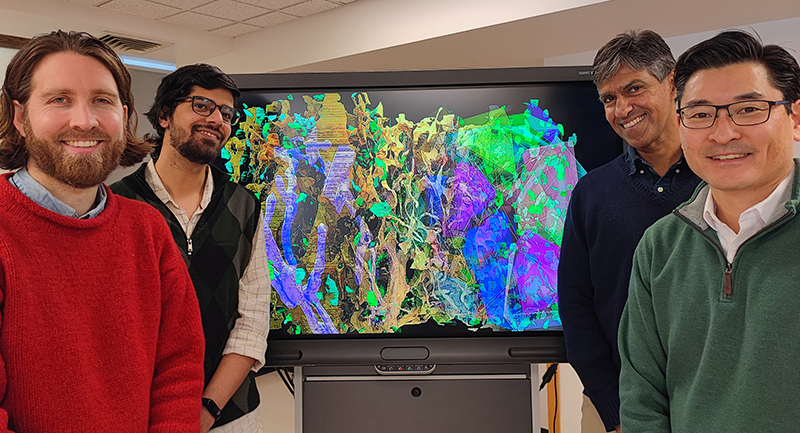About the Position
Field of Specialization: CIHR Tier 2 CRC in Indigenous, Racialized and/or Vulnerable Populations
Academic Unit: Faculty of Science
Category of Appointment: Preliminary (tenure-track) or tenured
Rank/Position Title: Assistant Professor or Associate Professor
Start Date: July 1, 2023
Closing Date: January 30, 2023
The Faculty of Science invites applications from qualified candidates for a Canadian Institute of Health Research (CIHR) Tier 2 Canada Research Chair (CRC) appointment beginning July 1, 2023.
The Faculty of Science is seeking an emerging scholar in one or more of the following research areas: Indigenous health; health in remote/northern communities; nutrition in isolated/vulnerable populations; and/or substance use health. Applicants with research at the intersection of these areas will be considered. Applicants will preferably possess lived experiences relating to this role.
Tier 2 Chairs are intended for exceptional emerging scholars (e.g., candidates must have been an active researcher in their field for fewer than 10 years at the time of nomination). Applicants who are more than 10 years from having earned their highest degree (and where career breaks exist, such as maternity, parental or extended sick leave, clinical training, etc.) may have their eligibility for a Tier 2 Chair assessed through the program’s Tier 2 justification process.
For more details, please see the Canada Research Chairs Secretariat and the Carleton Office for Research Initiatives and Services.
The successful candidate will work with the Faculty of Science to prepare the application for the Tier 2 CRC Chair. Academic appointment is conditional on the approval of the application by the CRC Program and will be made to an appropriate unit within the Faculty of Science.
To see the full position posting, please visit Carleton University’s Deputy Provost’s website at https://carleton.ca/deputyprovost/jobs/academics/.
About the Faculty of Science
The Faculty of Science is a research-intensive unit comprising 12 departments, schools, and institutes serving more than 5000 students. The Faculty includes world-leading researchers in many different areas and has strong and growing interactions with industry partners, government organizations, and other organizations located in Canada’s National Capital region. For more information, visit: https://science.carleton.ca.
Qualifications
- PhD (or other degree as applicable) in a relevant discipline. Candidates close to degree completion will also be considered.
- Demonstrated potential for outstanding teaching contributions.
- Demonstrated potential for innovative and scholarly research and the ability to develop an externally- funded, high quality research program.
- Excellent ability to contribute to the academic life of the appointed Unit.
Application Instructions
Applications must be sent electronically in one single PDF file, which includes the following:
- a cover letter of application (can include a description of lived experience as it relates to this role, if applicable)
- a curriculum vitae
- a description of teaching interests and experience (maximum 2 pages)
- a statement of research interests, including brief summary of past research activities and outline of planned activities (maximum 3 pages)
- a statement that identifies your strengths in advancing equity, diversity, and inclusion in your discipline and on campus as well as your future plans.
Applicants should provide the names of three individuals to provide letters of recommendation.
Please indicate in your application if you are a legally eligible to work in Canada.
If you’re interested in this opportunity, please contact Katherine Frank (kfrank@kbrs.ca) or Lauren Wright (lwright@kbrs.ca), or submit your application online at https://www.kbrs.ca/Career/16572.
To help Carleton University develop its equity programs, a confidential equity and diversity self-identification survey will be sent to all applicants separately.
About Carleton University
Located in Ottawa, Carleton is an innovative teaching and research institution with a tradition of leading change. Internationally recognized academics, staff, and researchers engage more than 31,000 students in over 100 programs of study. Carleton has long been known for promoting research excellence and connectedness and is involved in partnerships around the globe. With strong leadership, it enjoys a healthy financial position and our proximity to government and cultural institutions, media, and a thriving knowledge economy make Carleton and Ottawa a great place to work, learn, and live. Our picturesque campus is fully accessible and, along with award-winning student services, Carleton’s Paul Menton Centre for Students with Disabilities has been heralded as the gold standard for disability support services in Canada. Learn more about our university and the city of Ottawa.
We are strongly committed to equity, diversity, and inclusion in the nomination and appointment process. Carleton University is committed to fostering diversity within its community as a source of excellence, cultural enrichment, and social strength. We welcome those who would contribute to the further diversification of our university including, but not limited to women, visible minorities, First Nations, Inuit and Métis peoples, persons with disabilities, and persons of any sexual orientation, gender identity and/or expression. Furthermore, Carleton understands that career paths vary and interruptions will not prejudice the assessment process. We invite you to review our revitalized Indigenous strategy, Kinàmàgawin and visit our Department of Equity and Inclusive Communities for information about our commitment to leadership in the areas of equity, diversity, and inclusion.
Accessibility is a university strategic priority and applicants selected for an interview who require accommodations are invited to contact the hiring Chair as soon as possible to ensure appropriate arrangements are made.
All qualified candidates are encouraged to apply; however, Canadians and permanent residents will be given priority. All positions are subject to budgetary approval.









